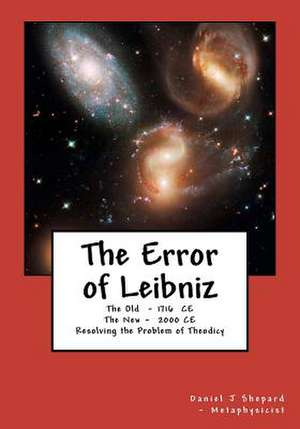The Error of Leibniz
Autor MR Daniel J. Sheparden Limba Engleză Paperback
Preț: 52.48 lei
Nou
Puncte Express: 79
Preț estimativ în valută:
10.06€ • 10.56$ • 8.30£
10.06€ • 10.56$ • 8.30£
Carte disponibilă
Livrare economică 02-16 ianuarie 25
Preluare comenzi: 021 569.72.76
Specificații
ISBN-13: 9781466219953
ISBN-10: 1466219955
Pagini: 70
Dimensiuni: 178 x 254 x 4 mm
Greutate: 0.14 kg
Editura: CREATESPACE
ISBN-10: 1466219955
Pagini: 70
Dimensiuni: 178 x 254 x 4 mm
Greutate: 0.14 kg
Editura: CREATESPACE
